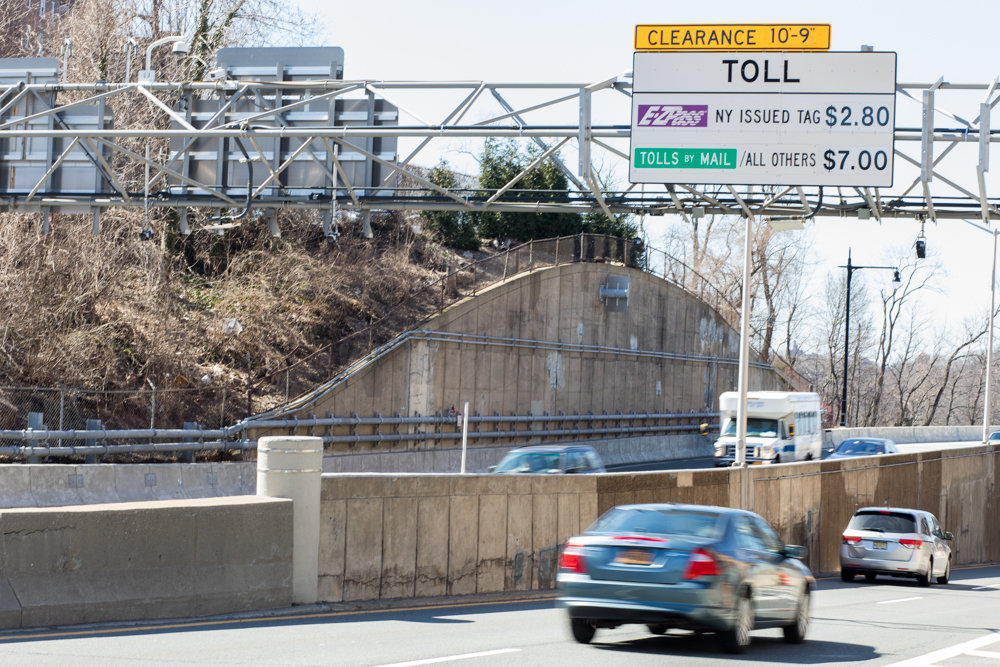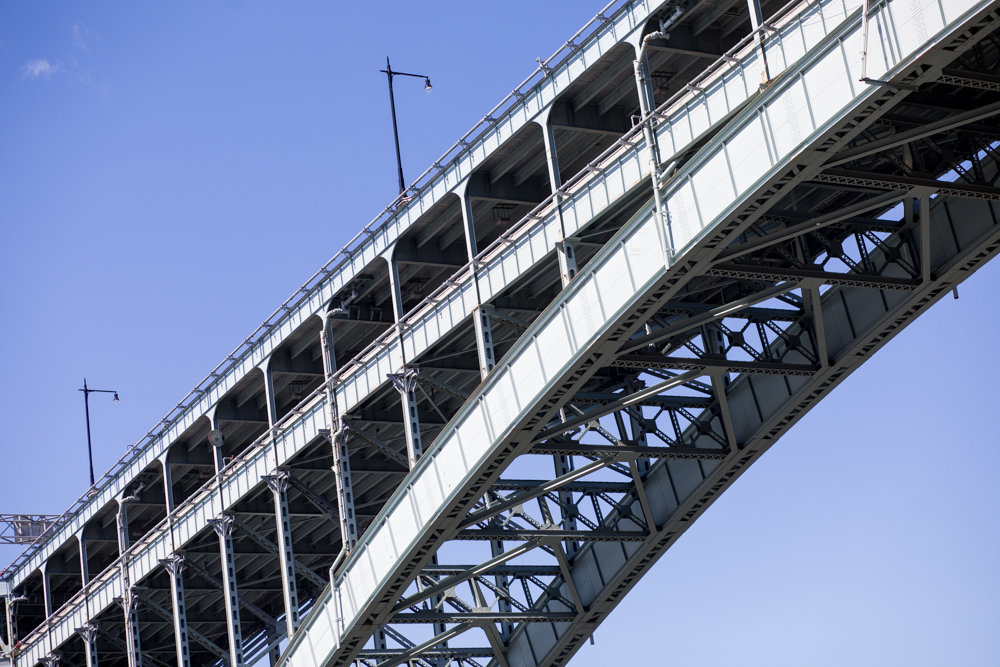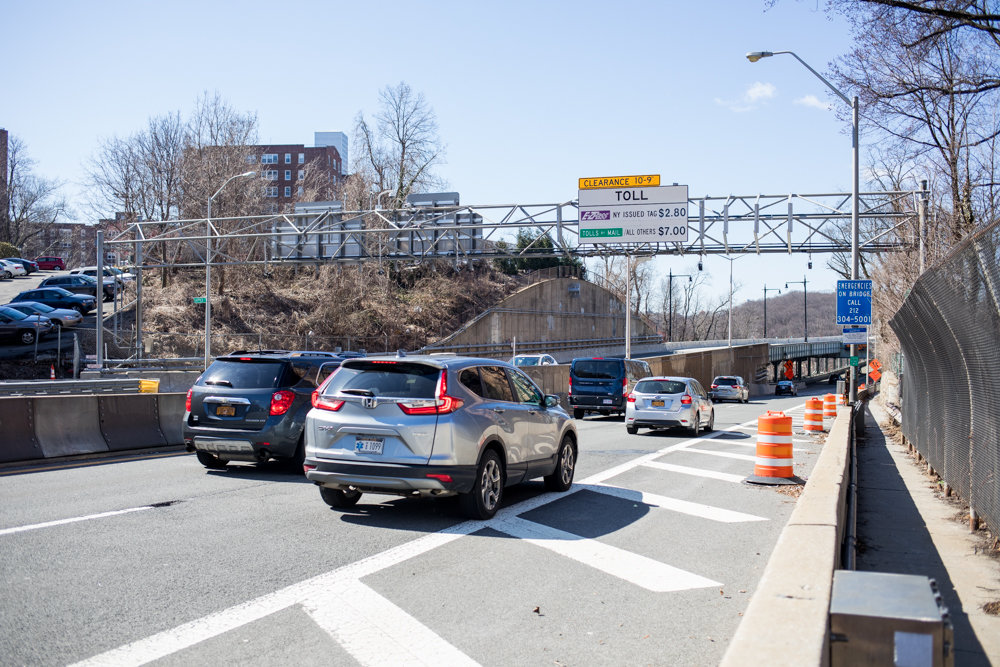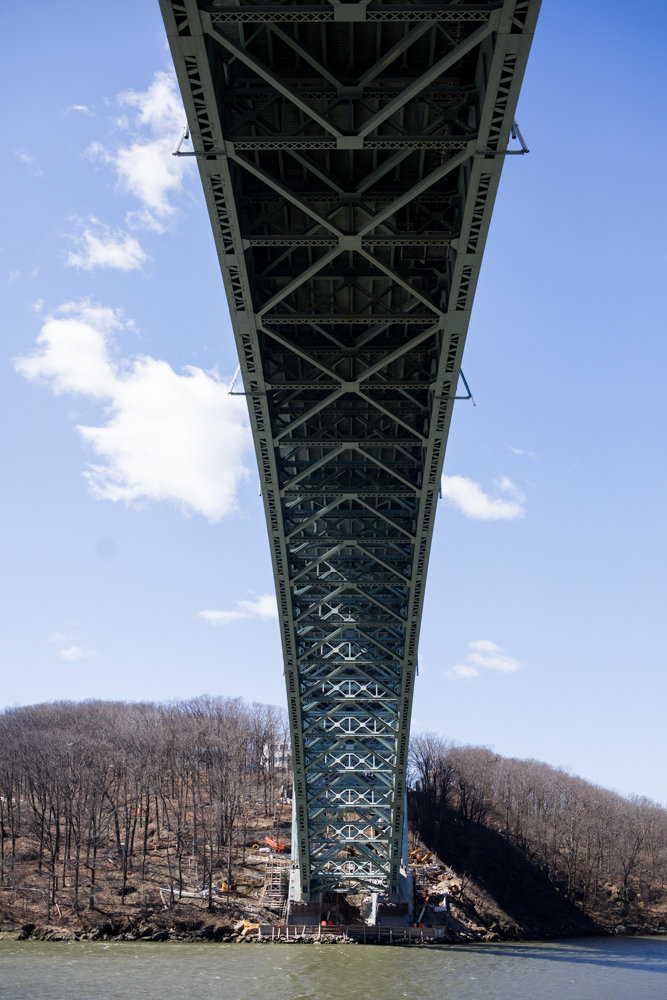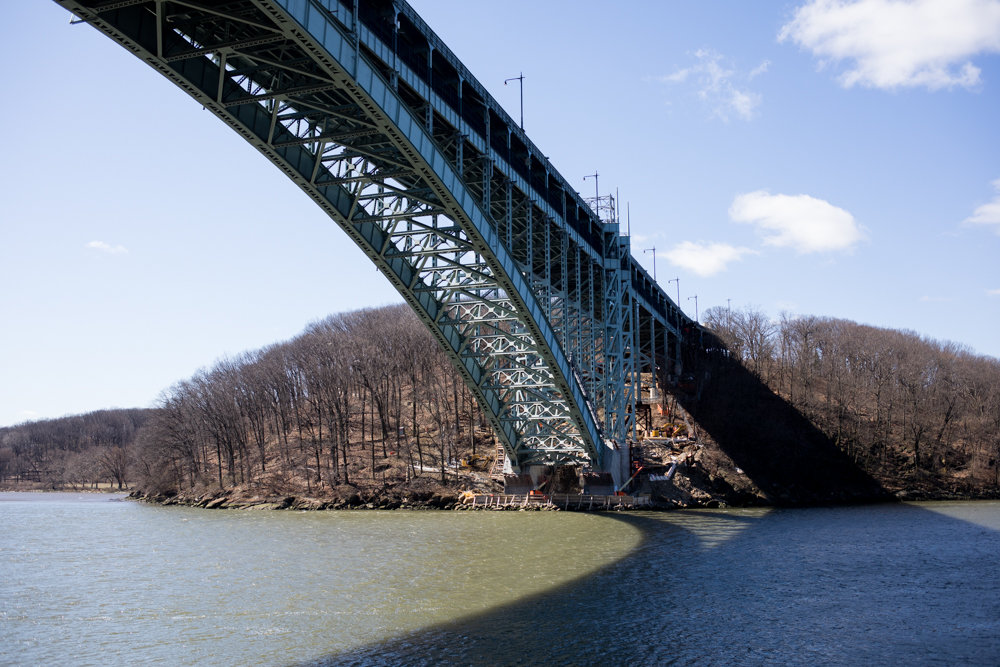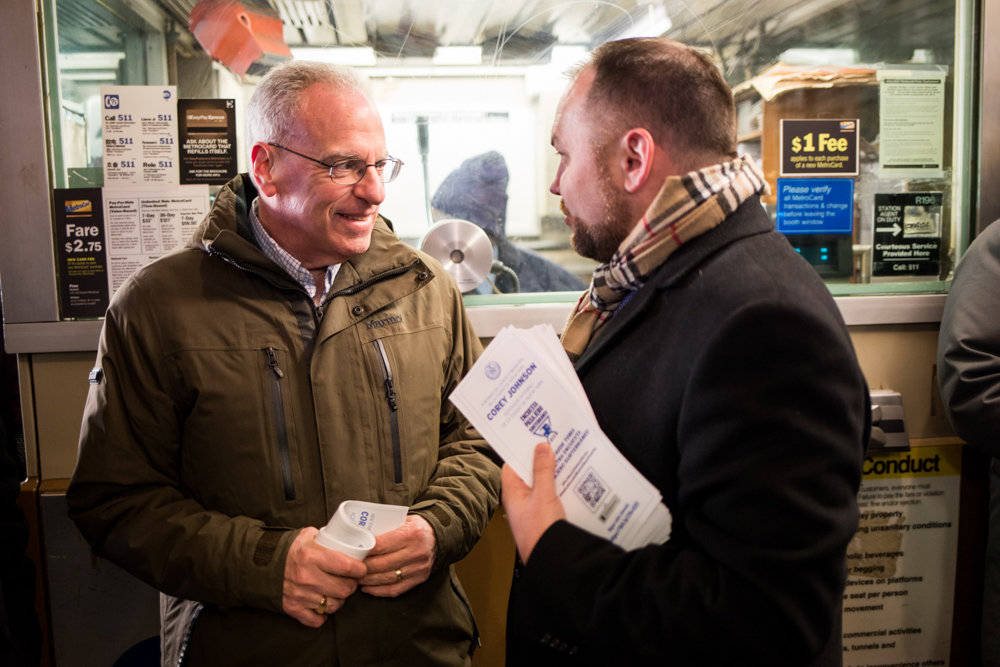Borough's motorists catch a break
If you live in the Bronx and have an E-ZPass, it’s about to get a whole lot cheaper crossing the Henry Hudson Bridge.
Free, in fact.
Assemblyman Jeffrey Dinowitz’s reluctant support of congestion pricing in Manhattan came at a price: Eliminate tolls for anyone from the borough wanting to drive across the half-mile bridge.
“The Henry Hudson Bridge has been one of the most complained about issues I’ve gotten over the years,” Dinowitz told The Riverdale Press. “People feel this very short bridge had a ridiculously large toll. And there are people in Riverdale, in particular, who still remember when it used to cost just 10 cents.”
Now the bridge costs $2.80 to cross with an E-ZPass, or $7 without one.
Beginning next spring, any driver with an E-ZPass registered to the Bronx will get their toll rebated. That means the system will charge the driver, but then immediately refund it.
The Henry Hudson becomes one of two bridges offering such a rebate in the aftermath of the state budget fight, with the Cross Bay Veterans Memorial Bridge in Queens announcing the elimination of its $2.40 toll for borough residents there last week.
“I’m still not a lover of congestion pricing, but since it is going to happen, the needs of the money for the MTA was incontrovertible,” Dinowitz said. “When I finally came to the conclusion that congestion pricing was going to happen, I decided to get my constituents something out of it.”
Congestion pricing is designed to charge tolls for cars in Manhattan’s business district beginning in 2021. The money — expected to hit the billions — would then be used to help improve the Metropolitan Transportation Authority’s subway and bus systems, according to Gov. Andrew Cuomo’s office. Congestion pricing became part of Cuomo’s state budget, intended to limit the number of cars crowding lower Manhattan streets.
The Henry Hudson plan could cost MTA $6 million a year, Dinowitz said. Assuming $2.80 per car, that would account for just over 5,800 cars per day, or a little less than 10 percent of overall daily traffic.
Dinowitz doesn’t expect it to cause tolls to rise, however. Funding should be off-set by the Outer Borough Transportation Account, funded by ride-hailing services like Uber and Lyft as well as taxi drivers, to help improve transportation in the outer boroughs.
The Henry Hudson Bridge is traveled by more than 62,600 cars a day, according to a 2018 city transportation department report, or 22.9 million cars a year. If all of them paid just the minimum toll, the bridge would generate $64 million.
Removing the Bronx revenue would cost the MTA less than a month of revenues.
Eliminating the toll would do more than just save Bronx residents money Dinowitz said. It could also move some of the traffic away from Broadway, especially the Broadway Bridge, which connects the borough to Manhattan without a toll.
“I don’t know how many people avoid the toll and drive into Kingsbridge and Marble Hill to go over the Broadway Bridge,” the lawmaker said. “This will take some cars out of more densely traveled communities, and I think that is a benefit to those communities. Not a large benefit, but a benefit nonetheless, when this kicks in.”
Broadway Bridge traffic has jumped more than 7 percent in the last decade, according to DOT, although its total traffic is still half that of the Henry Hudson Bridge. Yet its much larger counterpart has experienced a 13 percent decline in the same period.
“I don’t even take the bridge very often myself,” the Assemblyman said. “And sometimes I do avoid the toll by driving down Riverdale Avenue and everything. But I know a lot of other people who take the bridge every day, and they could save a couple thousand dollars a year.”
Someone taking the bridge twice every work day would likely save something closer to $1,400. Yet, MTA officials complained to Dinowitz early in the negotiating process that removing the tolls for Bronx residents would be too expensive.
“I don’t have the data to back it up, but I’ve lived in this community for a long time, and I know that almost everybody who uses the parkway in the morning are coming from Westchester and Connecticut.
“If you only give the benefit to people in the Bronx, the costs will be reasonable. But it will be a tremendous benefit to the people who are affected by it.”
Dinowitz said he also pushed new MTA chair Patrick Foye to redirect some of the outer borough funding money to buses in the Bronx, not just the subways. And he’s pushing to get more elevators added to train stations. Along the Bronx 1 train line, there is only one elevator, located at the West 231st Street stop.
The Henry Hudson Bridge joined other bridges in the city converting to cashless tolling. That means anyone crossing requires either an E-ZPass — a transponder connected to a refillable account which someone can pay tolls automatically — or by having a bill sent to the address their vehicle is registered to.
Even when the toll rebate program is implemented, those crossing the bridge may still need to ensure there is some money in their account. MTA will still deduct the $2.80 toll, but immediately refund it — but accounts that don’t have the $2.80 in it in the first place could be hit with fines or penalties, according to published reports.
Still, Dinowitz is counting this as a win.
“I don’t want to say this has been a 50-year battle, but it’s been something that has bugged people for a long time,” the Assemblyman said.
“I’ve kvetched about it occasionally, but this year I saw an opportunity, and my experience told me this might be the best and only time to get this done.”

